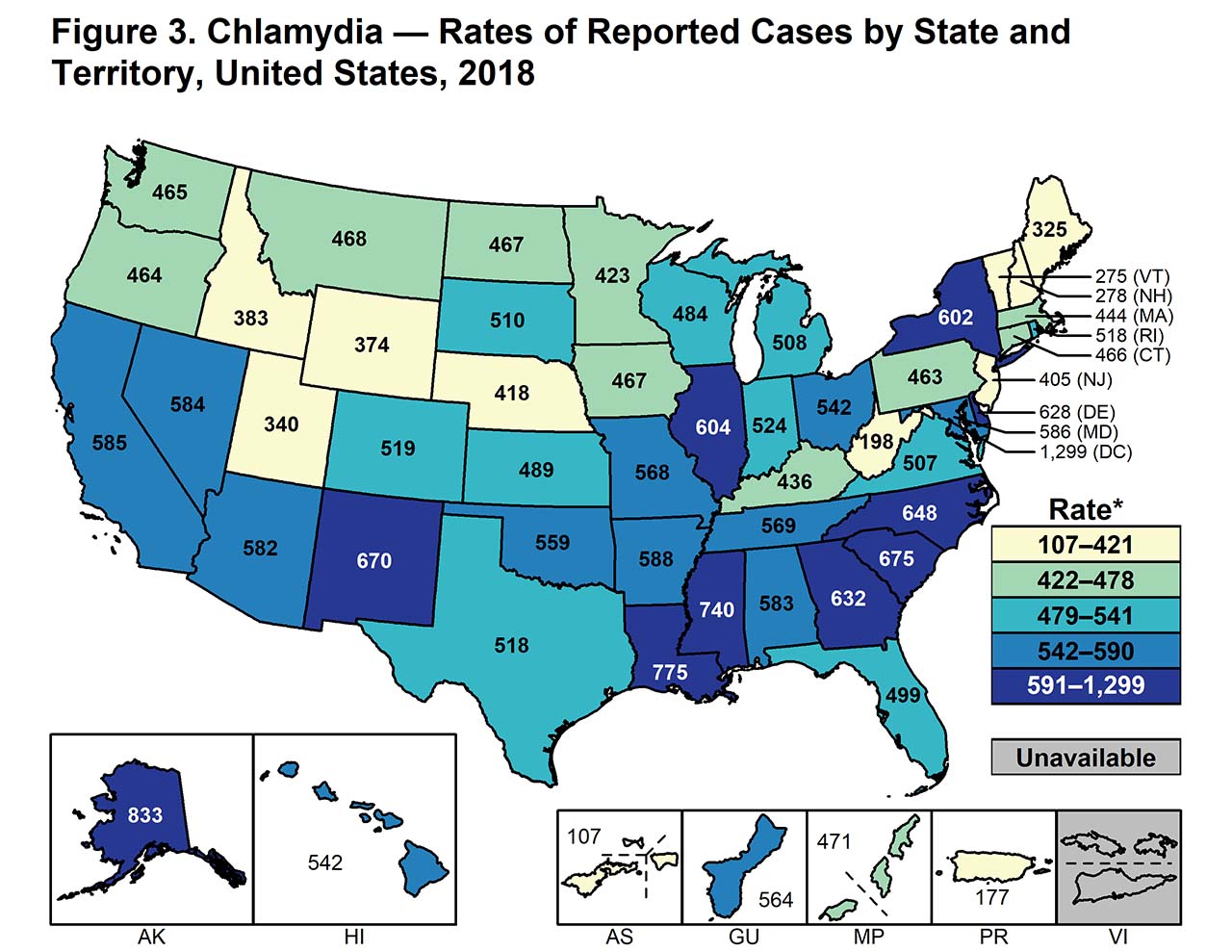STDs at an all-time high, condom use down, CDC says


NEW YORK (WABC) -- Three types of sexually transmitted diseases are at a record high in the United States, according to the Centers for Disease Control and Prevention.
Health officials report that cases of gonorrhea, syphilis and chlamydia have risen for the fifth consecutive year after more than 2 million people were diagnosed last year.
The combined number marks the most cases ever recorded in the U.S. since monitoring began.
Possible factors driving the increased numbers of STD cases include a surge in people getting tested, and cases being diagnosed and reported.
"This is preventable if people would understand how to take the steps so they don't get infected," said Dr. Jason Leider of NYC Health + Hospitals/Jacobi.
He says STD cases have been on the uptick for years now, with the most common diseases on the incline being chlamydia, gonorrhea, and syphilis. All three can have life changing effects.
"It can be devastating," said Dr. Leider. "People can get sterility, they can even get worse infections like HIV if they don't take the proper precautions."
Last year Kings County ranked 6th in the nation for cases of chlamydia with more than 21,000 cases. Bronx County came in 9th with more than 17,000 cases and Manhattan came in 10th, also with more than 17,000 cases.
Health officials say there's also a decline in people using condoms.
The new report also found the rates of STD cases reported were highest among adolescents and young adults.
The highest number of reported cases of chlamydia were in Alaska, while Mississippi had the highest number of gonorrhea cases and Nevada reported the most secondary syphilis cases.
For each of those three diseases, rates in the District of Columbia were higher than all states.
In addressing these numbers, health experts are encouraging people to become educated, get tested and most importantly, if you're having sex, protect yourself.
Sex education and prevention experts stress what they call is a "shared responsibility" among all parties, and parents needs to be on alert.
"If you are talking to your child and your child can talk to you and ask any questions, then it won't be your kid," Dr Melissa Haithcox-Dennis said. "But if the school system is not providing comprehensive sexuality education, then you have to do it at home. I think it's a shared responsibility."
----------
* Download the abc7NY app for breaking news alerts








